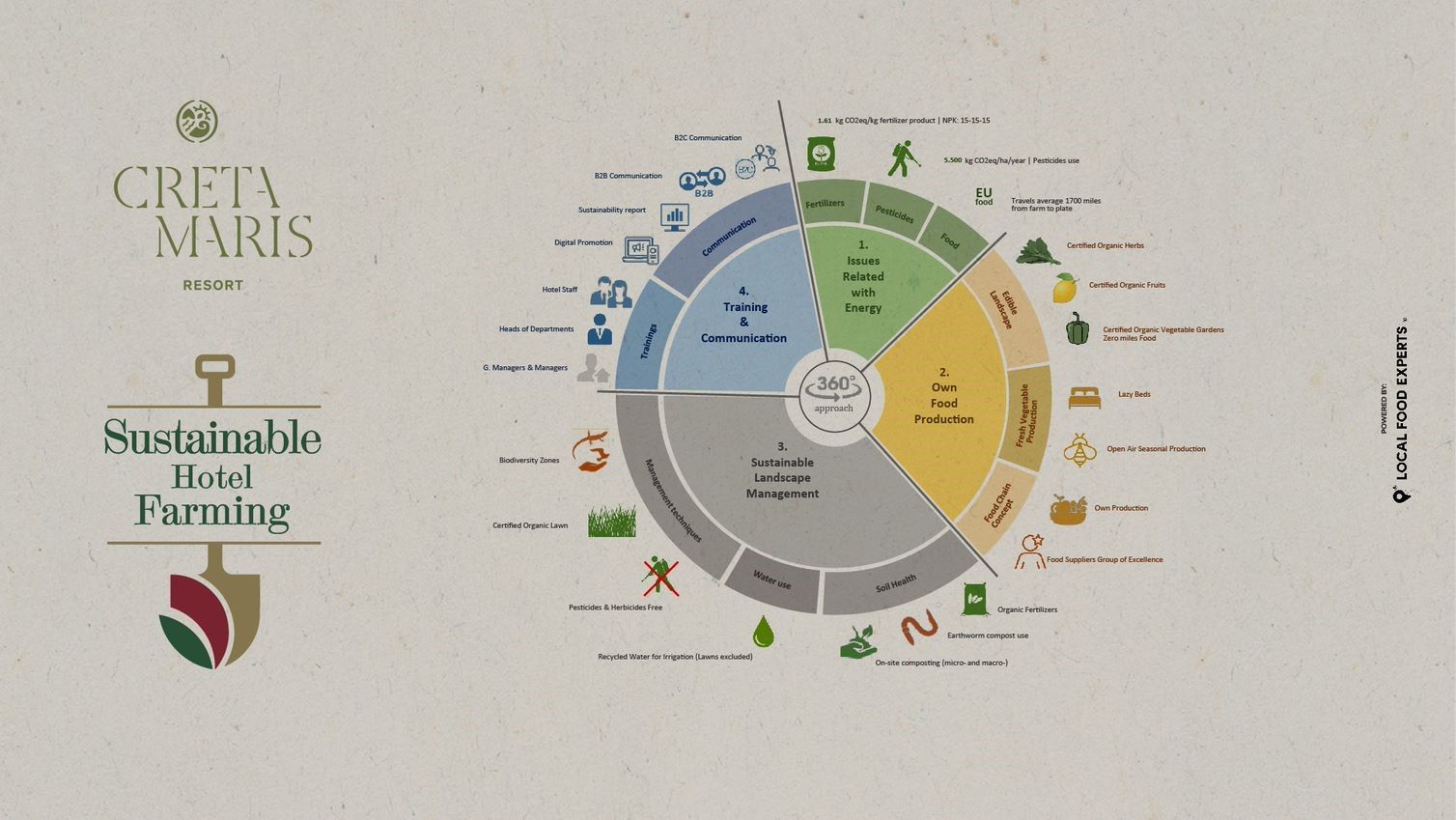Best Practice
The plastic waste management practices of Creta Maris are noteworthy. A unit-wide waste collection system is in place, sorting plastics in special bins at their source point. Once collected, outgoing plastics are weighed for waste production monitoring at the hotel’s warehouse before being sent for recycling. Creta Maris is committed to tackling food waste too. A multi-pronged approach is adopted to reduce wasted food, by closely monitoring food waste mass, serving sizes were adjusted, and better food presentation strategies were implemented. Additionally, the staff was trained on food waste reduction, while guests and employees were informed of these efforts.
Since 2013, Creta Maris Resort has been successfully implementing circular economy methods to become more environmentally sustainable. The unit’s management has developed “a personalised guide to building and implementing Sustainable Governance with a ‘think global ‘- ‘act local ‘mindset and a 2030 horizon”. This model is comprised by 4 sections (Sustainable committee – Strategic Priorities – Sustainable Procurement – Communication of Achievements) which guide individual actions that include policy alignment, practice adoption, responsible sourcing and disseminating the positive impact.
Challenges are related to change management and the ROI of sustainable investment. As there is a specific window of possible implementation for intervention in the premises of the resort (off-season), careful planning is needed. The initial investment needs to be capitalised in the very short term, by transferring the added value of the environmentally sensitive practices first to the brand and then to the actual experience of guests. A wider challenge is the perceived added value of environmentally sustainable practices for all-inclusive resorts by their guests, as virtue-signalling alone cannot drive demand up, but actual positive experiences.
The sustainable development strategy implemented by Creta Maris can be adapted to specificities of other touristic units, allowing them to manage their energy use, waste, food stuffs procurement and overall environmental footprint of their operation in an environmentally responsible manner. Units that adopt similar strategies benefit both their brand, which incorporates environmental responsibility values, and the experience offered to visitors.
Organization



